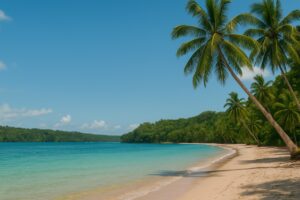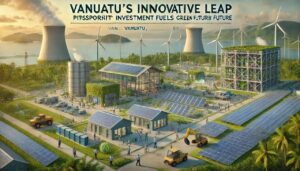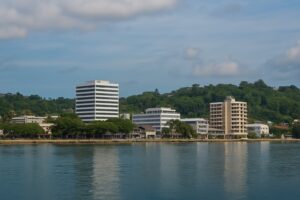Vanuatu’s Minister of Climate, Ralph Regenvanu, has made a passionate call for the establishment of a Global Commission on Fossil Fuels. Speaking at the Dialogue on Pathways to Transition Away From Just Fossil Fuels in Port Vila, Regenvanu stated that science and facts must drive the world forward, not money. He argued that such a commission would produce an authoritative evidence base on the impacts of fossil fuels and would inform the phase-out that is desperately needed. The fossil fuel industry must be held accountable for practically single handedly taking the world beyond the goal of staying below 1.5 degrees Celsius, he said.
Regenvanu emphasized that the use of fossil fuels is the main driver for the loss and damage experienced by Pacific Island nations. He believes that decentralised energy, available locally, clean, green, renewable, and abundant is the way forward. However, he acknowledged that reaching this vision of clear energy independence, in a just and equitable way, will require support from many, including those who have profited from fossil fuels at the expense of the Pacific Islanders.
Vanuatu has the highest disaster risk on the planet according to the World Risk Report 2021. The recent back-to-back cyclones only highlight the Pacific’s vulnerability to escalating climate risks. Just days before the cyclones hit, Vanuatu secured a historic motion supported by 105 countries to ask the International Court of Justice to define the legal responsibility countries have for not acting on the climate crisis.
Lavetanalagi Seru of the Pacific Islands Climate Action Network (PICAN) told the Dialogue that the world can no longer simply blame disasters on nature. “Every natural disaster is now a fossil-fuelled disaster, exacerbated further by the world’s unwillingness to break its addiction to fossil fuels.” Pacific leaders are exemplifying the leadership that is required, by coming together to discuss a just transition that supports Pacific Islanders and ensures that no one is left behind.
There is a growing sense of urgency when it comes to the transition away from fossil fuels. The Pacific Islands are on the front line of climate change and are already experiencing the devastating impacts of rising sea levels and extreme weather events. It’s time for the world to take responsibility for its actions and support the transition to clean, green, renewable energy.










